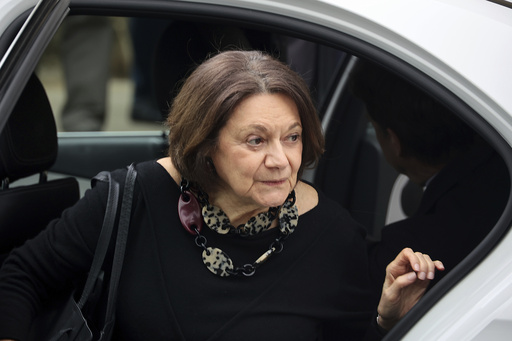
NICOSIA, Cyprus — The leaders of the divided communities in Cyprus announced their willingness on Monday to participate in a United Nations-led meeting scheduled for next month. This gathering could potentially lead to the resumption of official peace negotiations, which have been stalled for the past eight years, aimed at resolving one of the longest-standing conflicts in the world.
However, it remains uncertain whether this meeting will effectively address the significant differences between Ersin Tatar, who leads the self-declared Turkish Cypriots, and Nikos Christodoulides, the president representing the Greek Cypriots. Both leaders have divergent views on how any future peace agreement should be structured.
In preparation for the mid-March meeting, the two leaders engaged in separate discussions with Rosemary DiCarlo, the U.N. Under-Secretary-General for Political Affairs. This upcoming gathering will also include officials from Cyprus’s guarantor states: Greece, Turkey, and the United Kingdom. DiCarlo emphasized that U.N. Secretary-General António Guterres is committed to facilitating the progress of formal negotiations. Christodoulides further reiterated his stance that ongoing ethnic division should not be the future of Cyprus.
The island of Cyprus has been divided along ethnic lines for over fifty years. The split began in 1974 when Turkey launched an invasion in response to a coup supported by a Greek military junta, which aimed at uniting Cyprus with Greece. Almost a decade later, Turkish Cypriots proclaimed independence in the northern part of the island, where Turkey continues to station over 35,000 troops. Although Cyprus became a member of the European Union in 2004, only the Greek Cypriots in the southern region, where the internationally recognized government is located, benefit fully from membership.
Several U.N.-facilitated peace negotiations have ended without success, with the latest round faltering in 2017. After that breakdown, Turkey and the Turkish Cypriots moved away from the idea of a federated solution, which was the basis of prior discussions aimed at reunifying the island. Instead, they have proposed a two-state arrangement asserting that Turkish Cypriots should enjoy “sovereign equality and equal international status” alongside Greek Cypriots, as Tatar conveyed on Monday.
Conversely, Greek Cypriots oppose any agreement that would solidify the partition of the island. They also reject the demands from Turkey and the Turkish Cypriots for a permanent presence of Turkish troops and the rights for military intervention in a post-settlement scenario.
Highlighting the deep divisions, there is a current dispute over which additional crossing points should be opened along a 180-kilometer (or 120-mile) U.N.-administered buffer zone to facilitate movement between the two halves of the island. Presently, there are eight active crossing points.
Tatar indicated that the forthcoming meeting is set for March 17-18, while Cypriot government spokesperson Constantinos Letymbiotis mentioned that the U.N. would confirm the specific dates at a later time. DiCarlo also had discussions with prominent women from both communities on strategies to enhance female involvement in peace-building initiatives.

